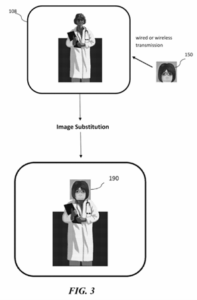The Patent Trial and Appeal Board (the “PTAB”) recently held, on remand from the Court of Appeals for the Federal Circuit (the “CAFC”), that five claims of Prisua’s U.S. Patent No. 8,650,591 (directed to a system for editing a video stream; see, e.g., patent Fig. 3, below) were invalid as obvious in an inter partes review (IPR) brought by Petitioner Samsung.
 The PTAB originally held that it could not review certain claims (claims 1–4, 8) because they were indefinite, could not be construed, and thus could not be found anticipated or obvious.[1] The PTAB found two types of indefiniteness at play. First, it found “IPXL-type” indefiniteness (claims where both a system and a method for using the system are claimed).[2] Second, it found means-plus-function-based indefiniteness due to insufficient corresponding structure. Samsung requested that the PTAB invalidate the claims for indefiniteness or evaluate anticipation or obviousness, notwithstanding the indefiniteness finding; nonetheless, the PTAB decided to let the claims stand. Samsung then appealed.
The PTAB originally held that it could not review certain claims (claims 1–4, 8) because they were indefinite, could not be construed, and thus could not be found anticipated or obvious.[1] The PTAB found two types of indefiniteness at play. First, it found “IPXL-type” indefiniteness (claims where both a system and a method for using the system are claimed).[2] Second, it found means-plus-function-based indefiniteness due to insufficient corresponding structure. Samsung requested that the PTAB invalidate the claims for indefiniteness or evaluate anticipation or obviousness, notwithstanding the indefiniteness finding; nonetheless, the PTAB decided to let the claims stand. Samsung then appealed.
On appeal, the CAFC held that the Board was correct in refusing to cancel claims in an IPR proceeding on indefiniteness grounds. The CAFC found that the PTAB properly limited its authority to the limits proscribed by statute by refusing to invalidate the challenged claims on the basis of indefiniteness. However, the court disagreed that any of the challenged claims were means-plus-function, much less that the claims were indefinite on that basis. The court further found that IPXL-type indefiniteness does not preclude evaluating a claim for anticipation or obviousness in the same way that other types of indefiniteness might. In light of the CAFC’s finding that the challenged claims were not indefinite—or, at least, that IPXL-type indefiniteness does not preclude an obviousness/anticipation determination—the IPR was remanded to the PTAB for further consideration.
On remand, the PTAB invalidated the remanded claims for obviousness on grounds similar to the bases for the PTAB’s initial invalidity findings regarding challenged claim 11. The PTAB’s findings of invalidity were over Priusa’s objections that (1) certain evidence should be excluded (Patent Owner’s testimony from the co-pending litigation) and (2) the IPR should be terminated because the district court trial proceedings had resulted in a finding that the claims were patentable. The PTAB, instead, found the district court’s decision to stay post-trial issues pending the IPR resolution to be compelling. This case further highlights the importance of litigants moving forward toward final resolution with all haste.
[1] Relying on Enzo Biochem, Inc. v. Applera Corp., 599 F.3d 1325, 1332 (Fed. Cir. 2010) (“a claim cannot be both indefinite and anticipated”). The only challenged claim found to be definite (Claim 11) was found to be invalid.
[2] IPXL Holdings, LLC v. Amazon.com, Inc., 430 F.3d 1377, 1384 (Fed. Cir. 2005) (holding that a claim that claims both a system and a method for using that system makes it unclear whether infringement would occur at creation or upon use of the system, making the claim indefinite).
